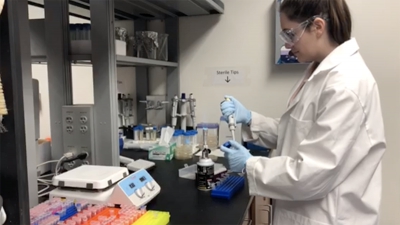Miami researchers discover process to sustainably produce psilocybin - a drug candidate that could help treat depression
A team of undergraduate students author published article
Andrew Jones at Miami University and his team of students may have developed a research first.
Through metabolic engineering, they discovered a way to sustainably produce a promising drug candidate to help patients with treatment-resistant depression.
Their findings are published in the journal Metabolic Engineering titled, “In vivo production of psilocybin in E. coli.”
Psilocybin is now in clinical trials, and medical professionals see promising results for its use in treating addiction, depression and post-traumatic stress disorder in humans.
Jones, assistant professor in Miami’s department of chemical, paper, and biomedical engineering, believed he could come up with a process using genetically engineered bacteria to produce the drug candidate.
The chemical, psilocybin, is naturally found in a specific mushroom, Psilocybe cubensis. Jones said to mass produce psilocybin from its natural mushroom host, it would require extensive real estate and time. Currently, alternative synthetic chemical production methods are used but are very expensive. Jones, the principal investigator of this research, wanted a solution that maintains biological integrity and reduces production costs.
Please click here for the full article
Source: Miami University, Oxford, Ohio http://miamioh.edu






















